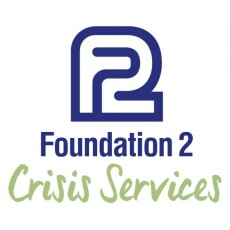Counseling staff members will respect the privacy of clients and will, within certain limits, hold in confidence the fact that the client is involved in counseling and all information obtained in the counseling relationship. With the exceptions described later in this statement, counselors will reveal information about a client only with the informed consent of the client. The Counseling Service staff needs to discuss with each other the work they do with clients, for the purpose of providing the best possible counseling to clients.
There are certain situations in which information about clients may be released without their permission. While not an exhaustive list of all possible situations, the following situations are those that arise most often:
- When the counselor determines the disclosure is necessary to protect against a clear and imminent risk of serious harm to the client or to another person. In such cases, the information will be disclosed only to appropriate professional workers, necessary college and public authorities, a potential victim of aggression, or the client’s family.
- When the counselor determines that abuse of children or vulnerable, dependent adults is occurring. In these instances, a report must be made to the Iowa Department of Human Services.
- When the counselor is presented with and cannot successfully contest a court order for the release of such information.
- When the client requires hospitalization for severe psychological problems, suicidal ideation or attempt, or a life-threatening eating disorder. In these instances, the counselor must notify the client’s parents (or spouse), the Dean for Student Life, and, if the client lives in a residence hall, appropriate members of the Residence Life staff. Only relevant, limited, and necessary information will be shared with these persons, who are always notified whenever a serious medical emergency arises with a student.
In the preceding situations, the counselor will, whenever possible, first discuss the disclosure of information with the client. The counselor will explain why the disclosure is appropriate and necessary and will seek the client’s permission to release information. The client and counselor may jointly be involved in sharing the information. However, should the client fail to give permission, the counselor will proceed to release the information without the client’s consent. In some emergency situations, there may not be an opportunity to discuss disclosure of information with the client prior to the actual disclosure.
E-mail Policy
The Counseling Services staff welcomes your contact. However, we strongly prefer that you handle all consultation, appointment scheduling, and discussion of counseling issues via phone or face-to-face contact with us. The nature of e-mail is much like sending a snail-mail postcard, and we cannot guarantee the confidentiality of messages. In terms of discussing issues, we believe e-mail is not as useful as in-depth, in-person contact. Finally, since staff members are sometimes away from the office, we cannot guarantee that we would see your e-mail right away or respond promptly. This becomes especially problematic with messages about crisis situations. We take your time and confidentiality very seriously and therefore consider it imperative that you understand the limitations of our use of e-mail technology.


